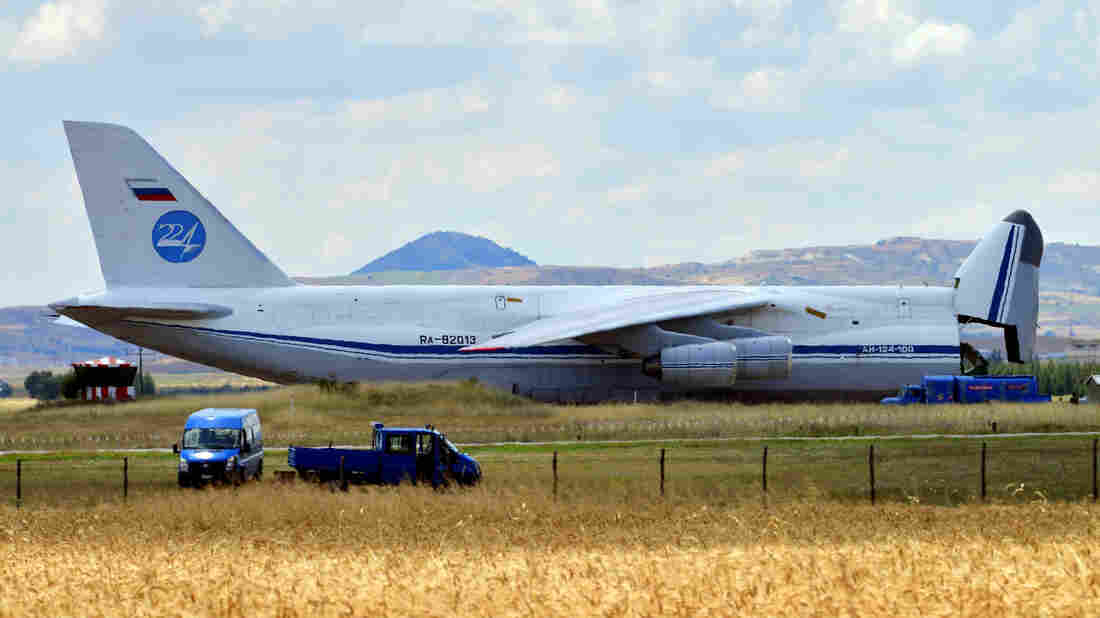
A Russian cargo plane carrying parts of Russia's S-400 missile defense system landed at a military air base near Ankara on Friday. Stringer ./Reuters hide caption
The first pieces of the S-400 missile system Turkey bought from Russia — against the wishes of the U.S. and NATO — began arriving Friday, according to Turkey's National Defense Ministry. In response, the Pentagon is expected to announce that Turkey will be barred from receiving the new F-35 fighter.
Turkey had planned to buy 100 F-35s, which is produced by Lockheed Martin Corp. But in the months since Turkey announced in 2017 that it also planned to install Russia's S-400 air-defense missile system, the U.S. has repeatedly said Turkey can have one or the other — but not both.
"If Turkey procures the S-400, it will mean they will not receive the F-35. It's that simple, " acting Secretary of Defense Mark Esper said last month.
Beyond implying a crisis of solidarity in the NATO alliance, the Russia-Turkey deal has been criticized by the U.S. and its allies because of the potential for sensitive information to be sent back to Russia by its advanced missile system.
Describing the worries of U.S. military officials, NPR's David Welna reported earlier this year:
"The S-400, they say, is designed to detect and shoot down stealth fighters like the F-35. Planting that air-defense system on Turkish soil could, by means of its powerful radar, help Moscow discover the secrets — and the vulnerabilities — of the F-35s that Turkey intends to acquire."
Despite warnings from the U.S. that buying the Russian system could prompt sanctions, Turkey went ahead with the deal. On Friday, Turkey's defense ministry announced via Twitter that the first component had arrived at the Murted Air Base in Ankara. Photos from the scene showed a large Russian cargo jet landing and opening its nose cone to unload large equipment — which was kept under tarps.
With the Russian system now landing on Turkish soil, NATO said on Friday that it's "concerned" about Russian missiles being deployed by a NATO ally.
"It is up to Allies to decide what military equipment they buy," a NATO official tells NPR. "However, we are concerned about the potential consequences of Turkey's decision to acquire the S-400 system."
Noting that NATO members see the interoperability of their military forces as a fundamental strength of the alliance, the official added, "We welcome that Turkey is working with several Allies on developing long-range air and missile defense systems."
According to Russia's state-run Tass media, Turkey is paying some $2.5 billion to acquire the missile system.
https://www.npr.org/2019/07/12/741068857/turkey-accepts-russian-s-400-missile-system-rankling-u-s-and-nato
2019-07-12 13:26:00Z
52780331174982
Tidak ada komentar:
Posting Komentar